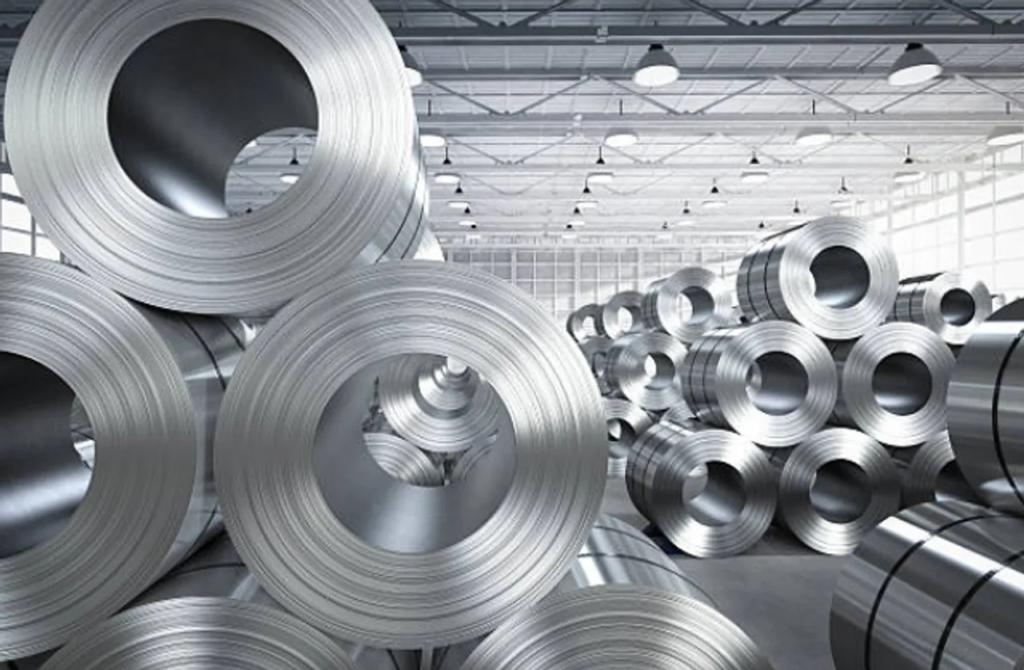Recent Posts
CMRL Fast-Tracks Okkiyam Maduvu Bridge Ahead of Northeast Monsoon
September 5, 202513.3-km Elevated Corridor Planned on ECR from Tiruvanmiyur to Uthandi
September 5, 2025Steel Industry Faces Turbulence After Sudden Quality Order Extension

India’s steel industry is headed for a storm after the Ministry of Steel suddenly extended the Quality Control Order (QCO) to extend into raw materials and inputs for steel production giving businesses less than one working day to comply.
The notification by the ministry on June 13, 2020, which was published on June 16, states that all steel inputs including imports must henceforth comply with the Bureau of Indian Standards (BIS) certification requirements. According to actors in the industry, manufacturers and importers have been completely taken by surprise, especially MSMEs, who argue that short-notice could lead to delayed supply chains as well as increased costs.
“This sudden requirement will choke imports and stall production,” said Panckaj N. Umrania, Executive Director at KND Steel. “It’s going to cause massive disruption manufacturers will struggle to comply, customers will face delays, and the compliance cost will rise steeply.”
The QCO’s impact extends globally. If a Malaysian supplier sells steel slabs to a Vietnamese firm, which then processes and exports them to India, both suppliers must now be BIS-certified a requirement many foreign exporters are unprepared for. As Indian importers scramble for documentation, overseas suppliers are expected to raise prices, compounding the burden on Indian businesses.
“There is no government support, and getting paperwork is a bureaucratic nightmare,” Umrania said. “One day’s notice is unworkable even a month wouldn’t be enough in the steel industry.”
Ajay Srivastava, founder of the Global Trade Research Initiative and former DGFT official, called the move unreasonable. “Importers got effectively zero working days to comply,” he said, noting the policy applies to all shipments with bills of lading dated June 16 or later.
“It’s especially tough for MSMEs importing semi-finished goods,” added Pankaj Chaddha, chairman of the Engineering Export Promotion Council of India. “They’ll be hit hardest by delays, paperwork, and cost hikes.”
- Ajay Srivastava GTRI
- BIS certification
- Build Watch News
- Buildwatchnews
- Bureau of Indian Standards
- compliance burden
- Engineering Exports
- government policy India
- import regulations
- Indian exporters
- Indian Manufacturing
- Indian Steel Market
- industrial news
- KND Steel
- Ministry of Steel India
- MSME impact
- MSMEs
- Quality Control Order
- semi-finished steel imports
- steel import challenges
- Steel Imports India
- Steel Industry
- steel price hike
- steel raw materials
- steel supply chain
- trade disruption India
Recent Posts
Tata Steel Expands Women’s Workforce to All Shifts at Kalinganagar Plant
September 6, 2025Telangana Resumes SLBC Tunnel Works, Sets December 2027 Deadline
September 6, 2025JK Cement begins work on ₹3,000-cr greenfield plant in Jaisalmer
September 6, 2025Categories
- AP34
- Apartments12
- Bengaluru107
- Budget 202520
- Cement98
- Chennai288
- Construction528
- CREDAI11
- Editors Pick42
- Equipment17
- Events11
- GST8
- Highways56
- Housing91
- Hyderabad36
- Industrial210
- Infrastructure307
- Interiors11
- Iron Ore15
- Karnataka20
- Kerala19
- Land59
- Market Updates195
- Metal10
- Metro85
- Mining9
- MSME9
- News1,444
- NHAI39
- Paints31
- Properties7
- Puducherry5
- Real Estate420
- Road153
- Sand16
- Short News117
- SIPCOT2
- Steel Daily322
- Stocks6
- Tamil Nadu248
- Technology32
- Telangana15
- Trade2
- Trending News1,031
- Video1
Related Articles
Tata Steel Expands Women’s Workforce to All Shifts at Kalinganagar Plant
Tata Steel today announced that it has extended the deployment of women...
ByKanmani ChokkalingamSeptember 6, 2025Telangana Resumes SLBC Tunnel Works, Sets December 2027 Deadline
Chief Minister of Telangana State A. Revanth Reddy has given a deadline...
ByKanmani ChokkalingamSeptember 6, 2025TN clears ₹2,126-cr funding for land acquisition on Poonamallee–Sunguvarchatram metro corridor
The ₹2,126 crore sanctioned by the Tamil Nadu government is to be...
ByKanmani ChokkalingamSeptember 6, 2025JK Cement begins work on ₹3,000-cr greenfield plant in Jaisalmer
The plant will be a significant addition to JK Cement’s present capacities...
ByKanmani ChokkalingamSeptember 6, 2025















Leave a comment